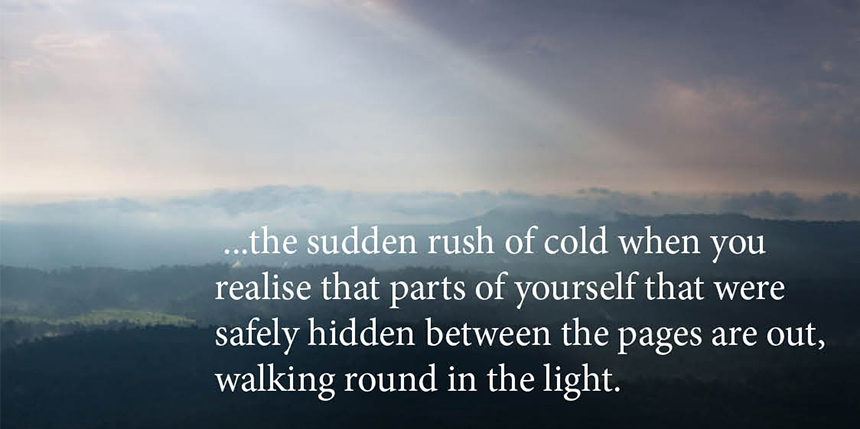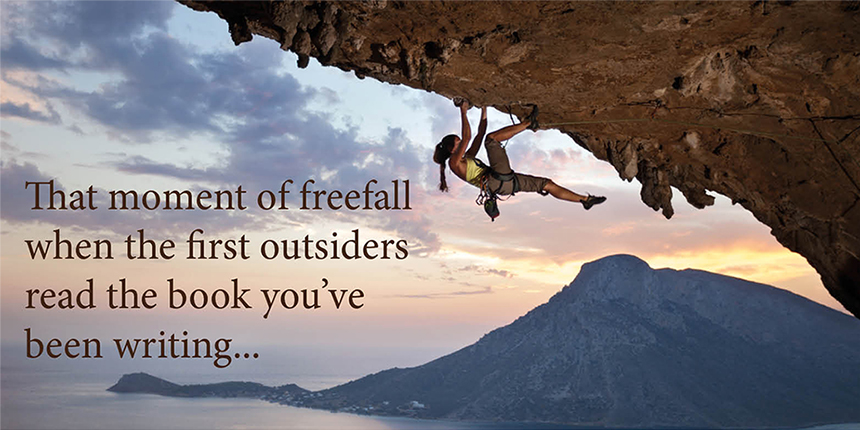THOUGHTS, DREAMS & ACTION

If we’re going to get through the next few years, we need a change of narrative so profound that our entire culture changes direction. We need not just new stories, but a whole new shape to what a story is. And it will start with our writing.
THOUGHTS | DREAMS | ACTION

If we’re going to get through the next few years, we need a change of narrative so profound that our entire culture changes direction. We need not just new stories, but a whole new shape to what a story is. And it will start with our writing.
On Praise and Vulnerability

Here’s the thing about writing a book. It’s a deeply personal experience. You sit in your office (or café, or car, or wherever you can best shut out the outside world) and commune with a cast of people who live entirely in your head. They are all, in fact, a part of you, small split parts of shadow or light, or mixtures of both, capable of greatness and horror, love and grief, murder, mayhem and acts of astonishing compassion.
For a year or more, you and they inhabit your world together. Late in the day, other competent adults become part of the process and incite you to cut whole swathes, telling you that this is the old chestnut of murder your children for the greater good of the project, when in fact what they want is for you to murder parts of yourself.
But you do it because they know whereof they speak, and they’ve been right in the past, and they’re probably right now, and between you, you polish and polish and polish and polish until the first draft becomes a final draft and you’re as happy with it as you can be, or at least ready to let it out into the world.
And you get on with the next one and some time later there’s a sudden rush of cold and waking up early and you realise that the parts of yourself that were safely hidden between the pages are out, walking round in the light – that sometime soon, other people are going to start meeting them, getting to know them, commenting on them.
In the millions of words devoted to the craft of writing, nobody seems to mention this. Writing is hard. It involves long hours of slog for the minutes of inspiration. It’s wonderful. It’s liberating. It’s the best way to make a living.
But heck, that moment of freefall when the first outsiders read a book is still a uniquely exposing experience.
It does change. For all kinds of reasons, there is nothing like the sudden vulnerability of a first book: it takes ideas that have been around for ages, it’s almost always the most self-drawn work, and the experience is new. We learn to ride our vulnerabilities in the same way we learn how to speak in front of large audiences – by doing it. Watching Brené Brown’s TED talk on Vulnerability helps.
But if the expectation is terrifying, the reality is oddly unsettling. In many ways, the harsh reviews are the easiest, if the most crushing. We all have an inner critic and the bad reviews at least echo that voice: there’s a level at which we know they’re right, even if we hate them.
Harder to deal with is the praise because there is a bit within each of us that is still deeply involved with, even in love with, the people and their plight and we desperately want others to feel the same. So we read the reviews through half shut eyes and turn away before the end until or unless someone comes along who actually gets it. Someone who has read between the lines and within the lines and found the core and heart of the book. And then we can go back to writing something new, and feel whole again.

